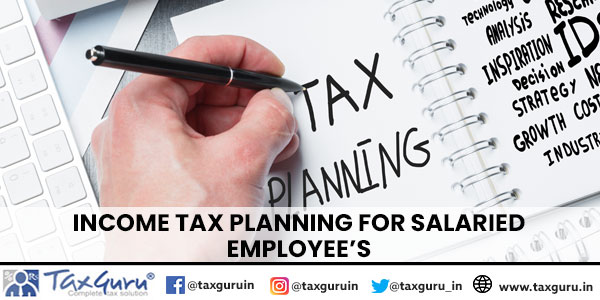As we approach the end of the fiscal year 2023-24, it’s crucial to consider your tax planning strategies before the deadline on March 31, 2024. Let’s explore various allowances and deductions that qualify for income tax exemption:
1. House Rent Allowance (HRA): For salaried taxpayers, the House Rent Allowance (HRA) often marks the initial opportunity for tax savings. HRA received from the employer is eligible for exemption provided the employee resides in rented accommodation and pays rent to the landlord. This exemption can be claimed by furnishing proof of rent paid to the employer or during the filing of income tax returns under Section 10(13A).
2. Leave Travel Allowance (LTA): Under the Leave Travel Allowance (LTA), salaried taxpayers can seek reimbursement for expenses related to domestic vacations, including travel tickets for themselves and their families. However, it’s important to note that this exemption does not cover expenses incurred for the entirety of the trip, such as shopping, food, entertainment, and leisure activities. The LTA exemption falls under Section 10(5) and is applicable for up to two journeys within a block of four years.
3. Children Education Allowance: Salaried individuals have the opportunity to claim special allowances for their children’s educational and hostel expenses. The Children’s Educational Allowance permits an exemption of Rs. 100 per child per month, applicable for a maximum of two children enrolled in an educational institution.
4. Section 80C ,80CCC and 80CCD(1): Section 80C stands as one of the most widely utilized avenues for claiming income tax deductions. This section enables individuals to seek deductions for various expenditures and investments made within the financial year, with an upper limit of Rs. 1.5 lakh. Additionally, Section 80CCC permits deductions for investments in annuity plans provided by insurance companies. Moreover, Section 80CCD(1) allows deductions for contributions made to the National Pension System (NPS) account. The combined deduction limit encompassing Sections 80C, 80CCC, and 80CCD(1) remains at Rs. 1.5 lakh
5. Section 80CCD(1B): Section 80CCD(1B) offers an extra deduction of up to Rs. 50,000 for contributions directed towards the National Pension System (NPS). This additional deduction of Rs. 50,000, specified under Section 80CCD(1B), is accessible on top of the existing benefit of Rs. 1.5 lakh deduction allowed under Section 80CCD(1).
6. Interest on Home Loan (Section 24): You’re eligible to claim this deduction if you’ve availed of a home loan for purchasing or constructing a house. Section 24 allows you to claim a deduction for the interest paid on the home loan. If the property is self-occupied, you can claim a deduction of up to Rs. 2 lakh. However, if the property is rented out, there is no limit to the deduction you can claim.

7. Deduction for Laon for Higher Studies (Section 80E): Under Section 80E, you’re entitled to a deduction for the interest paid on education loans taken for higher education, whether for yourself, your spouse, or your children. This deduction encompasses interest payments made to any bank or financial institution. Notably, there’s no ceiling on the deduction amount; however, it’s important to note that the deduction is applicable solely to interest payments, not to principal repayments.
8. Donations (Section 80G): If you’ve contributed to approved charitable institutions in the preceding year, you’re eligible to claim deductions for these donations under Section 80G. The extent of tax deductions varies depending on the recipient organization, ranging from 50% to 100% of the donated amount. It’s recommended to make donations via cheque, as cash donations exceeding ₹ 2,000 are ineligible for deduction.
9. Interest on Home Loan (80EE): Section 80EE offers an additional deduction of Rs. 50,000 specifically for interest paid on home loans. This deduction is separate from the Rs. 2 lakh deduction available under Section 24. However, there are certain conditions that must be met:
- You should be a first-time homebuyer.
- You should not own any other residential property.
- The loan must be sanctioned between 1st April 2016 and 31st March 2017.
- Home loan should be upto Rs 35 lakh.
- The value of residential property should be upto Rs 50 lakh.
For any inquiry you may write us on: canarenderredhu@gmail.com
Disclaimer: The information provided by the author in the article is for general informational purposes only. All information provided is in the good faith, however we make no representation or warranty of any kind, express or implied, regarding the accuracy, adequacy, validity, reliability, availability or completeness of any information in the article






Nice Article Thank You